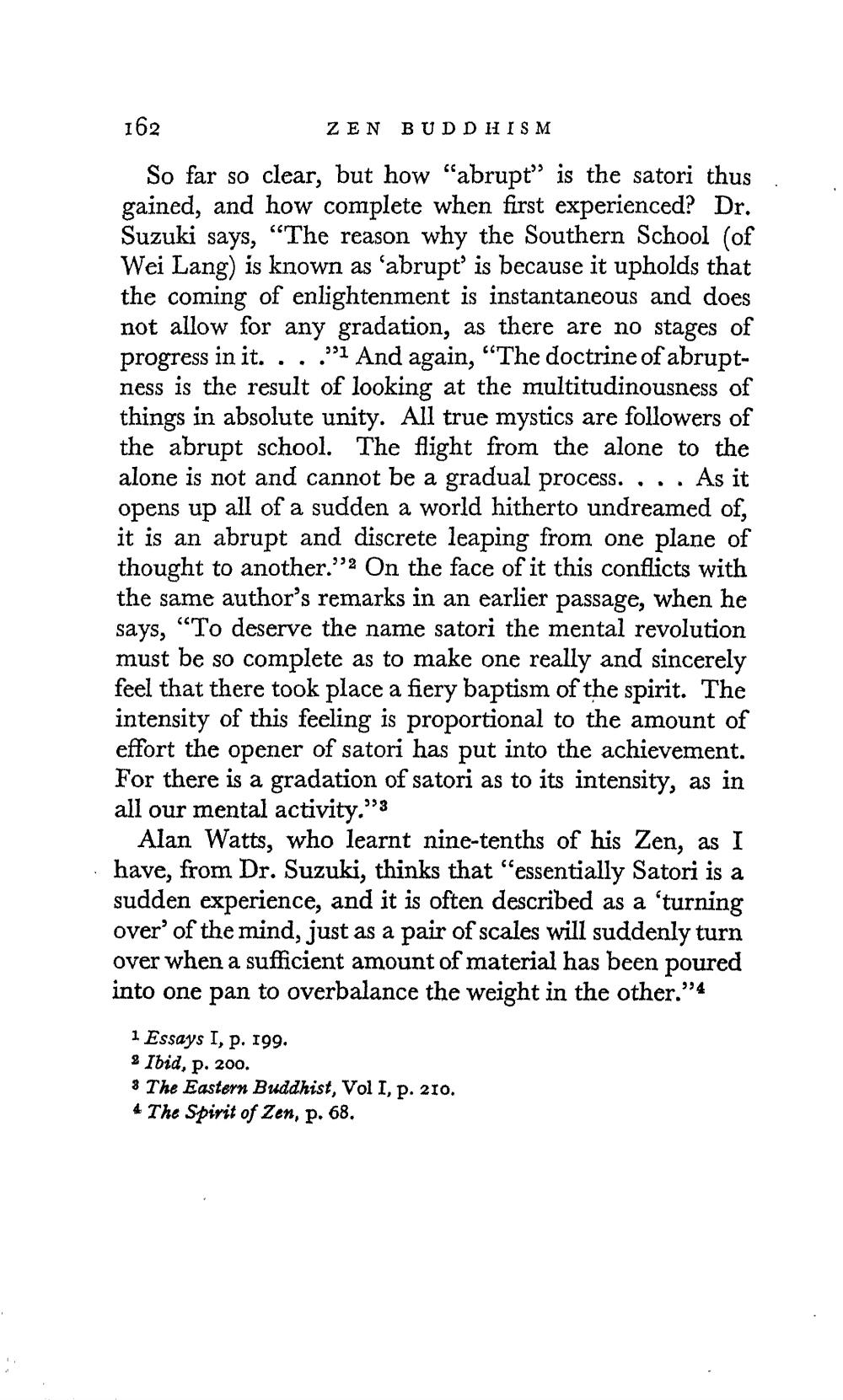________________
162
ZEN BUDDHISM
So far so clear, but how "abrupt" is the satori thus gained, and how complete when first experienced? Dr. Suzuki says, "The reason why the Southern School (of Wei Lang) is known as 'abrupt' is because it upholds that the coming of enlightenment is instantaneous and does not allow for any gradation, as there are no stages of progress in it. . ." And again, "The doctrine of abruptness is the result of looking at the multitudinousness of things in absolute unity. All true mystics are followers of the abrupt school. The flight from the alone to the alone is not and cannot be a gradual process. As it opens up all of a sudden a world hitherto undreamed of, it is an abrupt and discrete leaping from one plane of thought to another." On the face of it this conflicts with the same author's remarks in an earlier passage, when he says, "To deserve the name satori the mental revolution must be so complete as to make one really and sincerely feel that there took place a fiery baptism of the spirit. The intensity of this feeling is proportional to the amount of effort the opener of satori has put into the achievement. For there is a gradation of satori as to its intensity, as in all our mental activity."
Alan Watts, who learnt nine-tenths of his Zen, as I have, from Dr. Suzuki, thinks that "essentially Satori is a sudden experience, and it is often described as a 'turning over' of the mind, just as a pair of scales will suddenly turn over when a sufficient amount of material has been poured into one pan to overbalance the weight in the other."4
1 Essays I, p. 199.
2 Ibid, p. 200.
8 The Eastern Buddhist, Vol I, p. 210.
4 The Spirit of Zen, p. 68.




